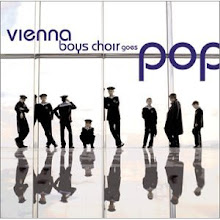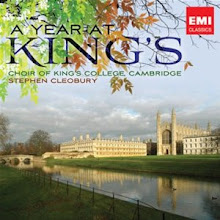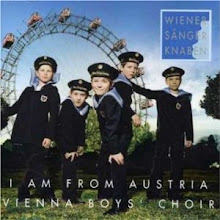Alan Mould, former Headmaster at St. John’s College choir school in Cambridge has written The English Chorister, A History, a book that’s packed with interesting information dating back to Biblical times.
I’ve mentioned it before and I still like to explore it. I have a tough time remembering all the dates and names and details, though. It might be easier if it were written more like a story than a text book but it’s still fun to sift through it. Some parts are very sad. For example…
Choral music in England was not always appreciated as it is today. During the Protestant Reformation the choirs were shut down until sanity could once again be established. During the reign of Elizabeth I choirs were nurtured and at that time Richard Hooker wrote “Church music is in truth most admirable… They must have hearts very dry and tough” who do not draw spiritual delight from it.
In 1572 the Puritans submitted to Parliament that cathedrals were “the dennes of all loitering lubbers, wher Deane… Canons… the cheefe chaunter, singing men… squeaking queresters, organ players… live in great idleness and have their abiding.”
Reading that passage makes me think that much of the ignorance of the Reformists could be tied to their inability to spell.
Things continued to worsen and later, in 1642, Canterbury Cathedral was sacked, the books ruined and the organ damaged. Windsor Castle saw its choristers expelled. At Winchester Cathedral the music books were burnt and the organ wrecked. The same damages occurred at Chichester, Peterborough, Norwich and other cathedrals.
“At Hereford, York and Exeter… choristers were driven out with the jeering cry, ‘boyes, we have spoiled your trade, you must go and sing Hot Pudding Pies’.” I have no idea what that means but it sounds quite rude.
John Vicars wrote: “Whereas there was wont to be heard nothing but Roaring-boyes, tooting and squeaking Organ-pipes and the Cathedral-Catches of Morley…the bellowing Organs are demolish’d and pulled down and the (choristers) driven out…”
They considered it an improvement and in 1643 “the sound of boys’ voices singing in quire was utterly silenced throughout England”.
It’s hard to imagine. Fortunately, the sons of the men who were expelled from the choirs became the next generation of singers. I love a happy ending.
Saturday, November 21, 2009
Subscribe to:
Post Comments (Atom)













It's a great book but I wish that Mould were not so accepting towards the end of the admission of girls to historically all-male cathedral choirs, a development I (and the Campaign for the Traditional Cathedral Choir, to which I belong and would encourage you to link) oppose.
ReplyDeletehttp://ctcc.org.uk/
The Puritan vandalism is indeed tragic; unfortunately, their evil spirit survives today in places like Sydney, Australia, where the ultra-protestant bishop and his brother the dean have waged war against traditional sacred choral music and drastically limited the choir's opportunities to perform, forcing out the previous music director.
Another recommendation for a link: New York's St Thomas Church Fifth Avenue is the outstanding American example of the Anglican men and boy choral tradition, and webcasts all of their choral services on the internet:
http://www.saintthomaschurch.org/
Nice blog!
Thanks for the great comments. You have a very informative web site and I'm happy to provide a link here. I support all efforts to promote this type of music and your articles are very helpful.
ReplyDelete